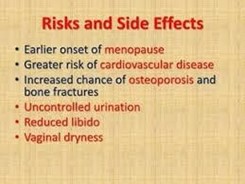A nurse is assessing a client who is experiencing postpartum hemorrhage. Which of the following findings should the nurse identify as an indication of excessive blood loss?
Tachycardia
Flushed skin
Polyuria
Firm fundus
The Correct Answer is A
Choice A rationale:
Tachycardia (rapid heart rate) is a common early indicator of excessive blood loss. It is the body's compensatory response to decrease in circulating blood volume.
Choice B rationale:
Flushed skin is not necessarily indicative of excessive blood loss. Pallor may be more characteristic.
Choice C rationale:
Polyuria (increased urine output) is not a reliable indicator of blood loss and is not commonly associated with postpartum hemorrhage.
Choice D rationale:
A firm fundus is a positive sign and indicates the uterus is contracting appropriately. It is not indicative of excessive blood loss.
Nursing Test Bank
Naxlex Comprehensive Predictor Exams
Related Questions
Correct Answer is A
Explanation
Choice A rationale:
Clients with Parkinson's disease often have motor difficulties and slowed movements. Allowing extra time for activities of daily living (ADLs) can help them maintain independence and reduce frustration.
Choice B rationale:
Weight gain is not a common manifestation of Parkinson's disease or a primary concern in its management.
Choice C rationale:
Instructing the client to look down at the feet when walking is not accurate advice for Parkinson's disease. It's important to maintain an upright posture and look ahead to improve balance and gait.
Choice D rationale:
A low-protein diet is not generally recommended for clients with Parkinson's disease, as protein can affect the absorption of levodopa, a common medication used in its management.
Correct Answer is D
Explanation
Choice A rationale:
Weight loss is not typically an expected manifestation following a total abdominal hysterectomy.
Choice B rationale:
Increased libido is not necessarily an expected manifestation following a total abdominal hysterectomy.
Choice C rationale:
Decreased menstrual bleeding is expected, as the uterus has been removed.
Choice D rationale:
Vaginal dryness is an expected manifestation following a total abdominal hysterectomy due to the removal of the ovaries, which produce hormones that contribute to vaginal lubrication.

Whether you are a student looking to ace your exams or a practicing nurse seeking to enhance your expertise , our nursing education contents will empower you with the confidence and competence to make a difference in the lives of patients and become a respected leader in the healthcare field.
Visit Naxlex, invest in your future and unlock endless possibilities with our unparalleled nursing education contents today
Report Wrong Answer on the Current Question
Do you disagree with the answer? If yes, what is your expected answer? Explain.
Kindly be descriptive with the issue you are facing.
